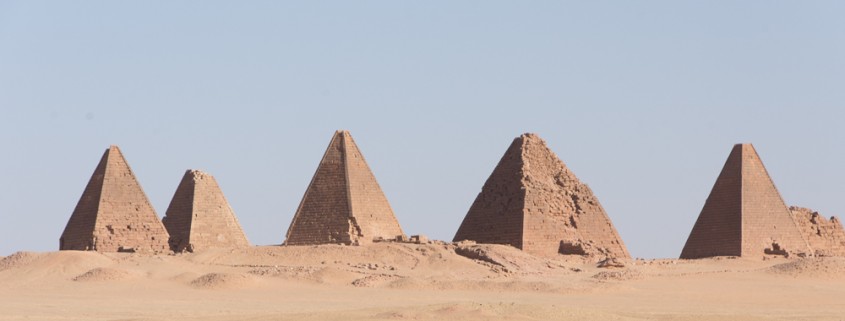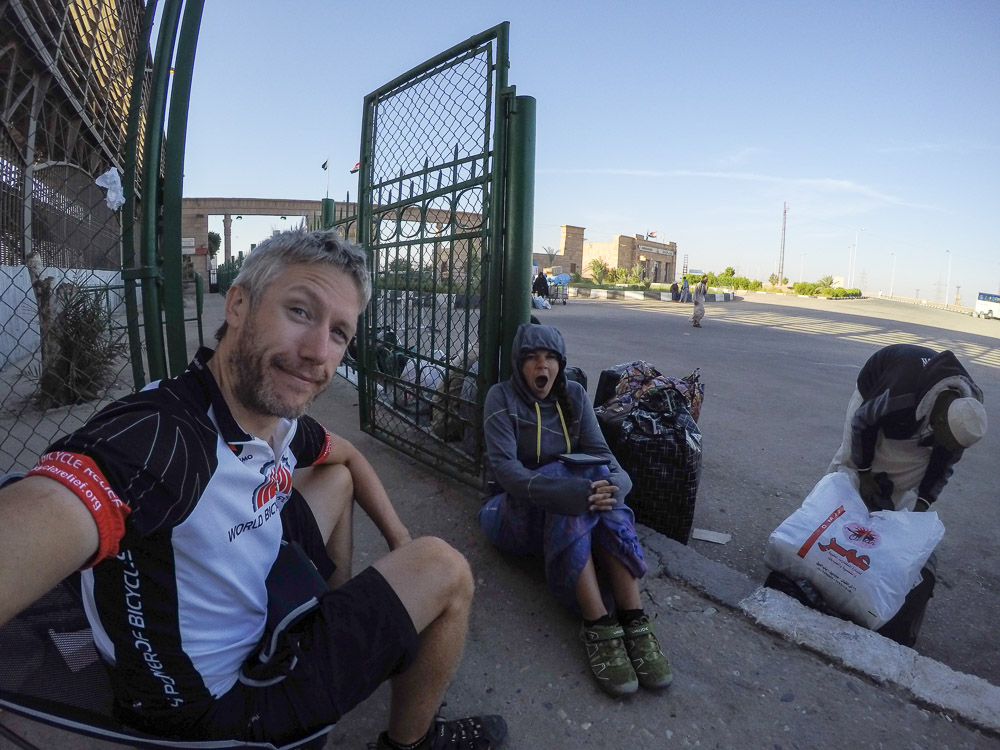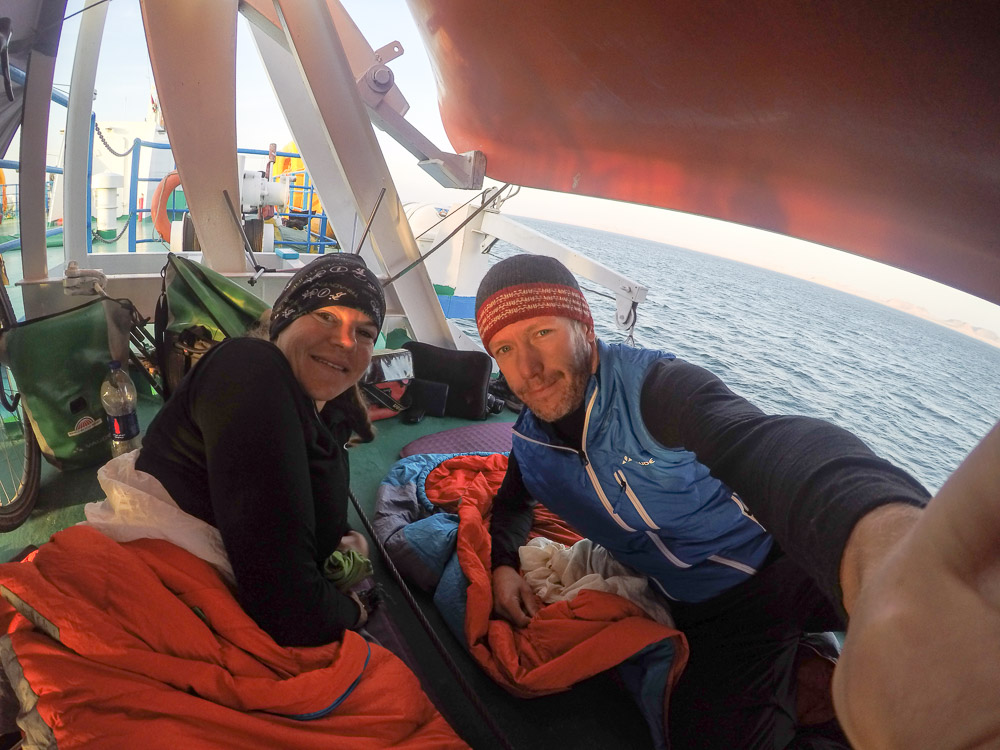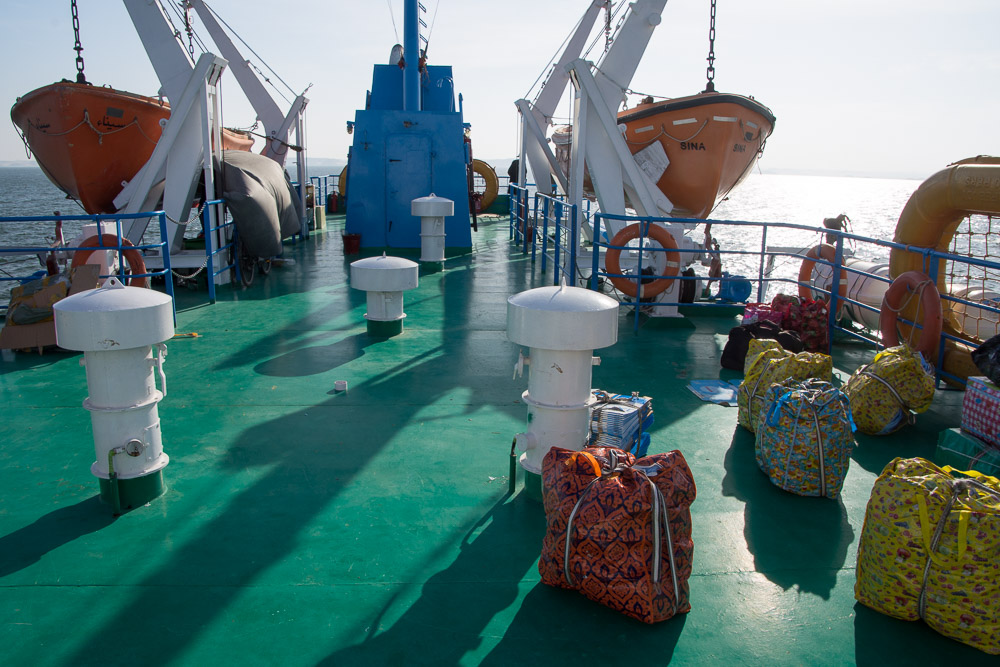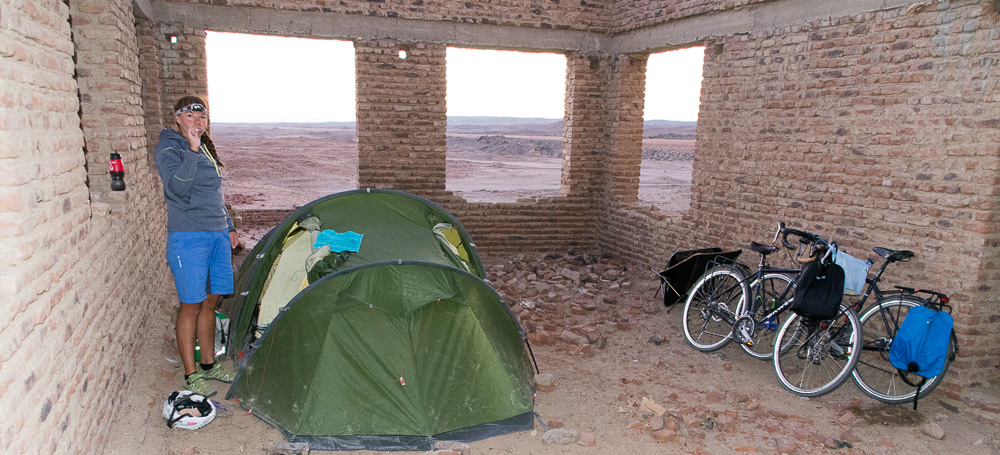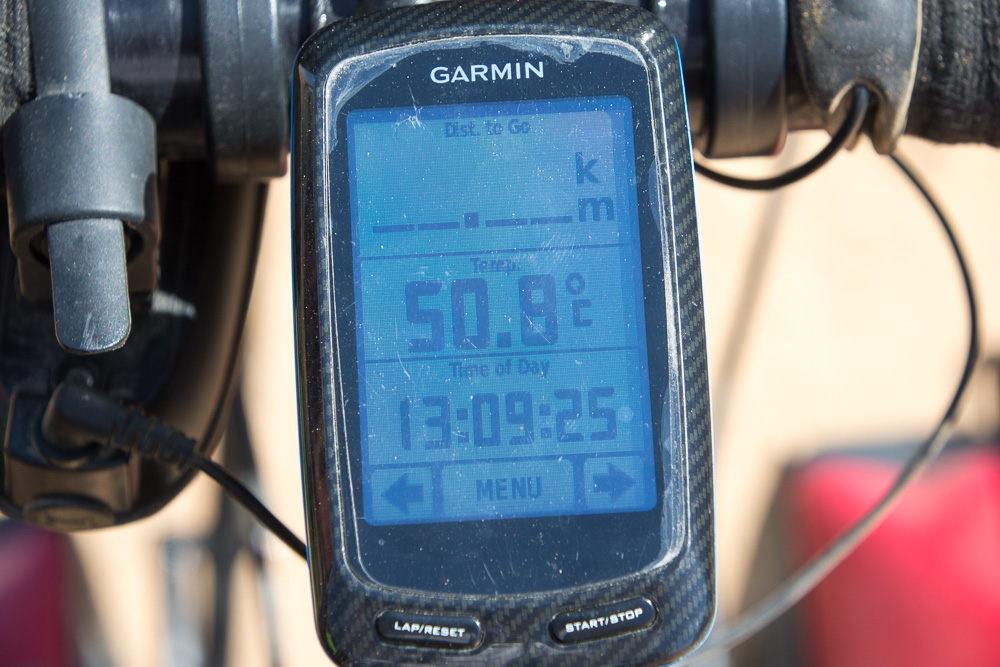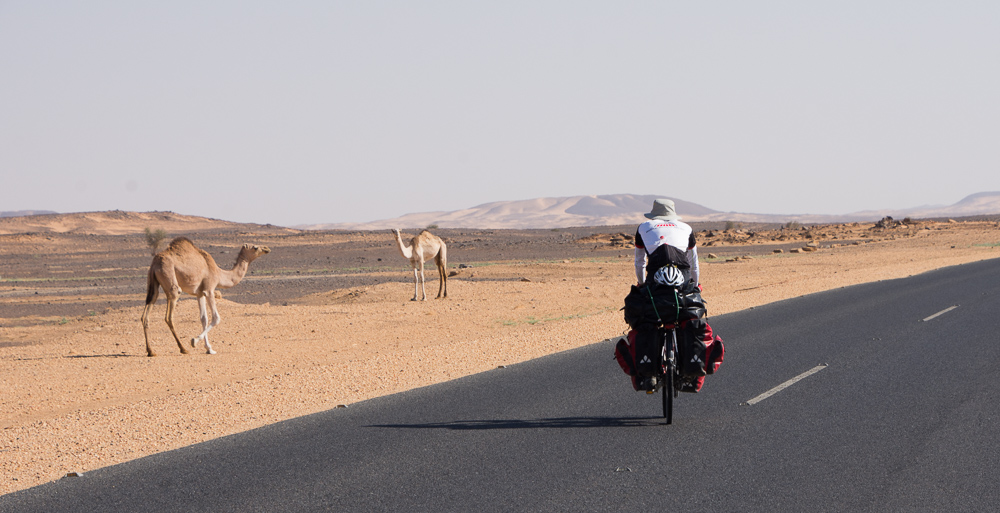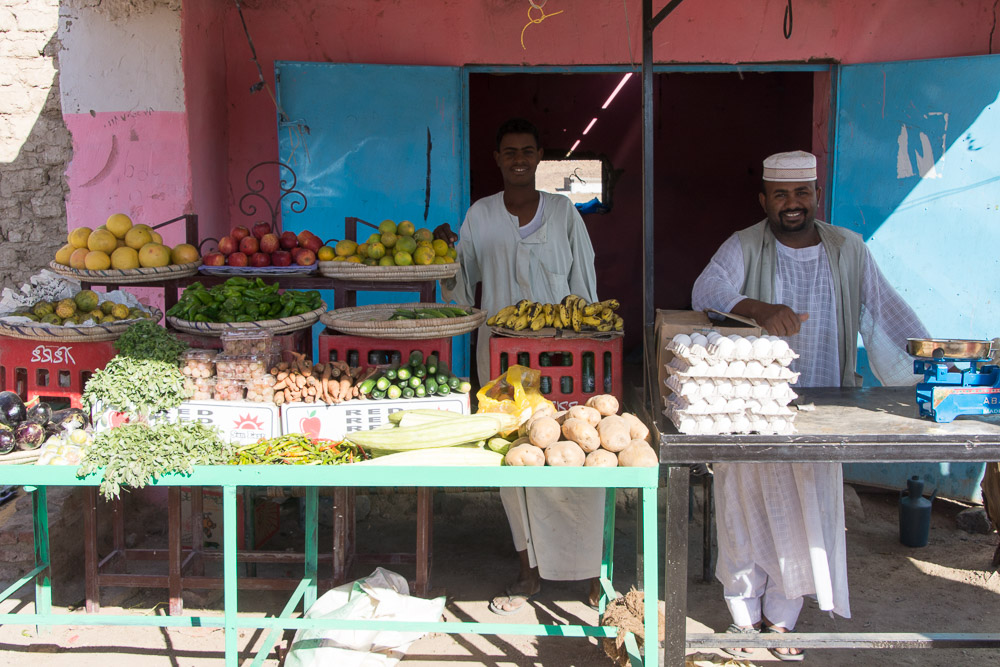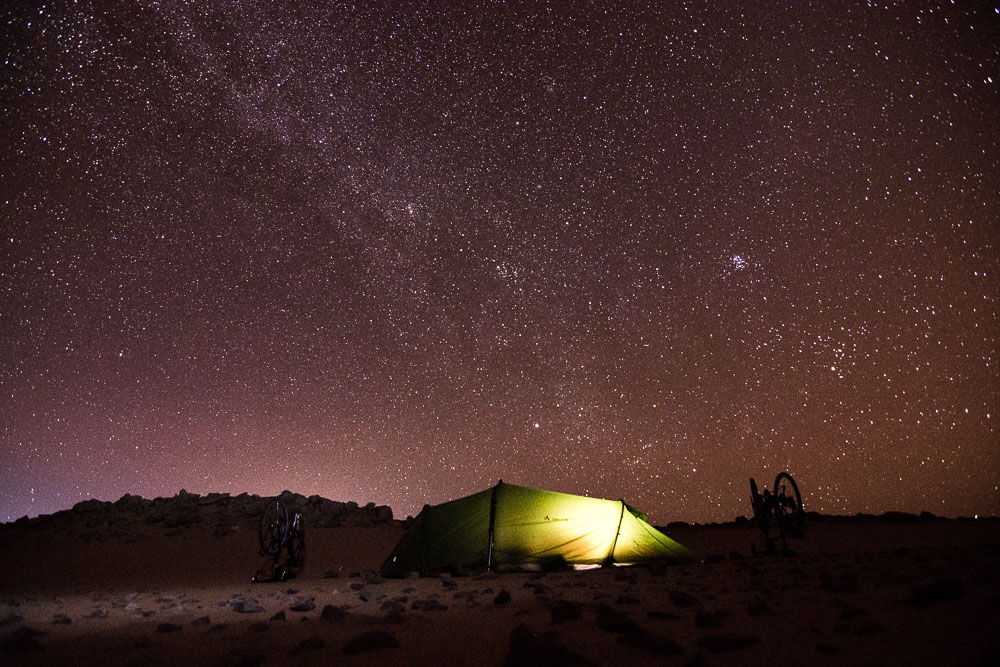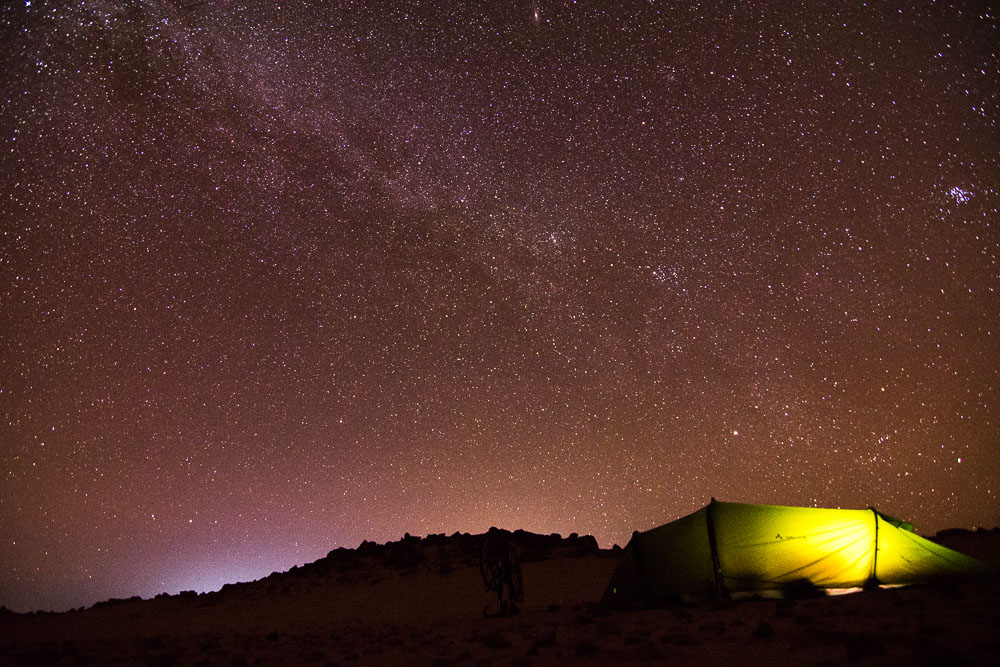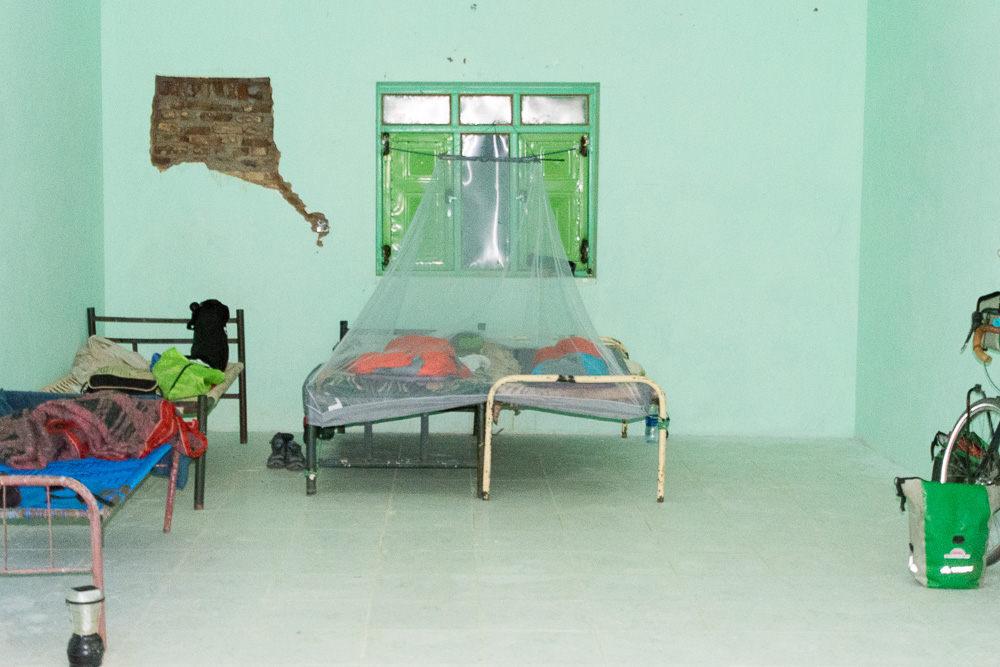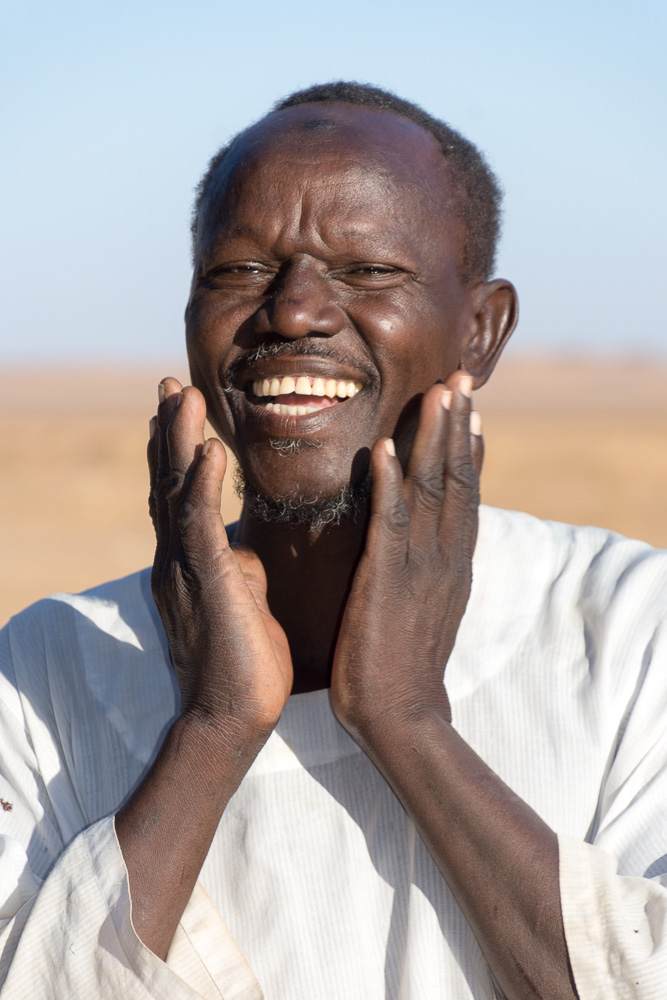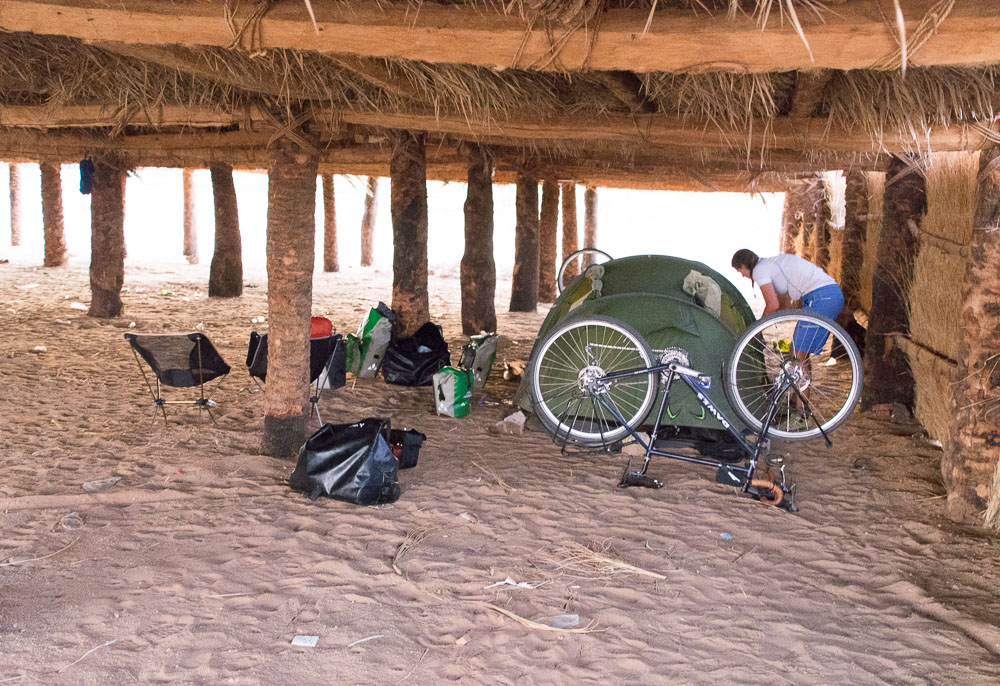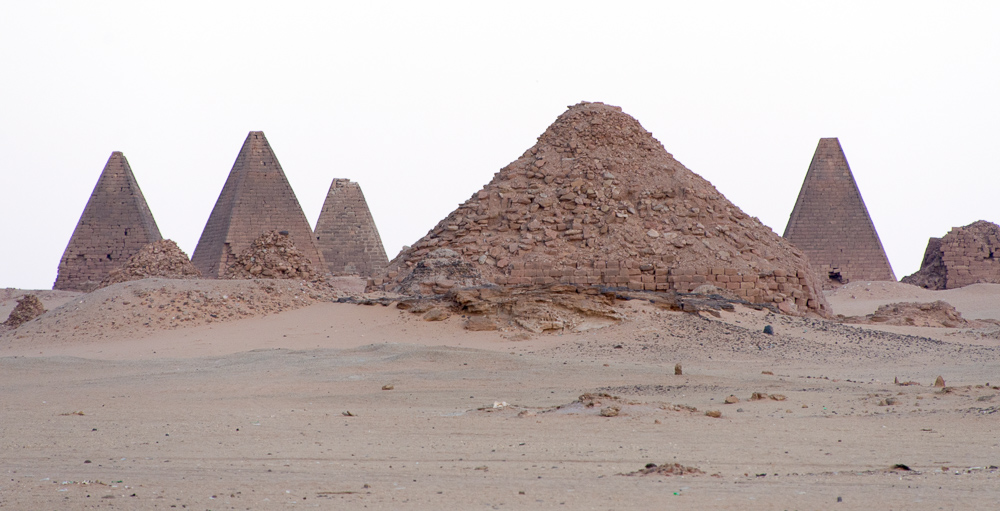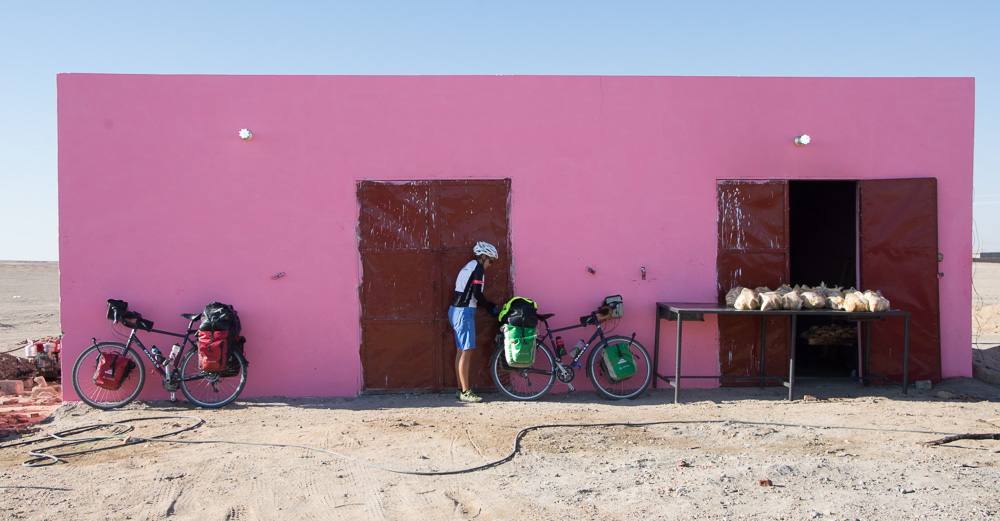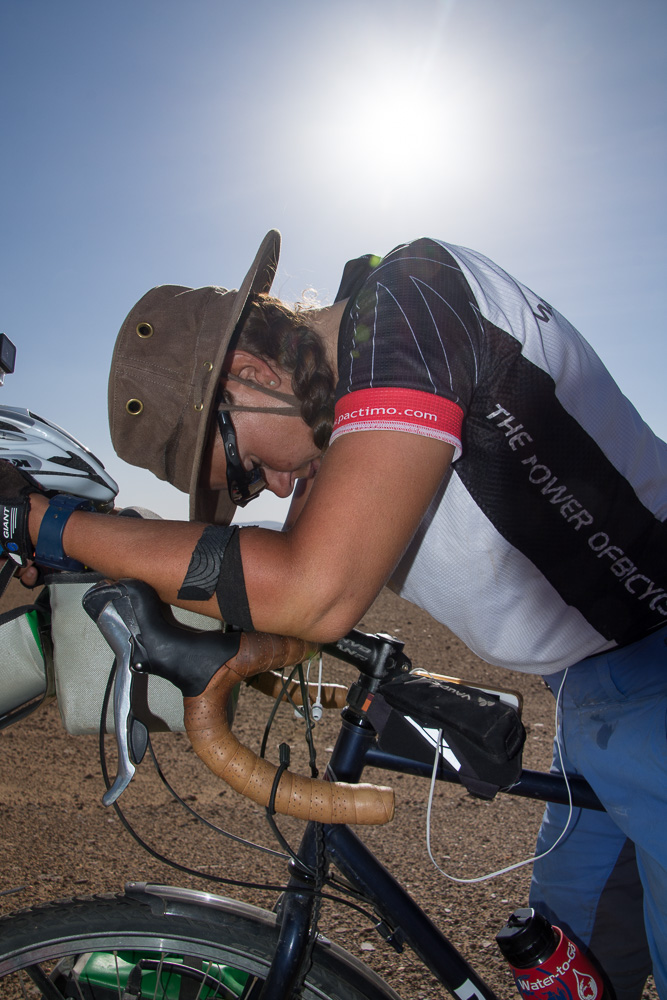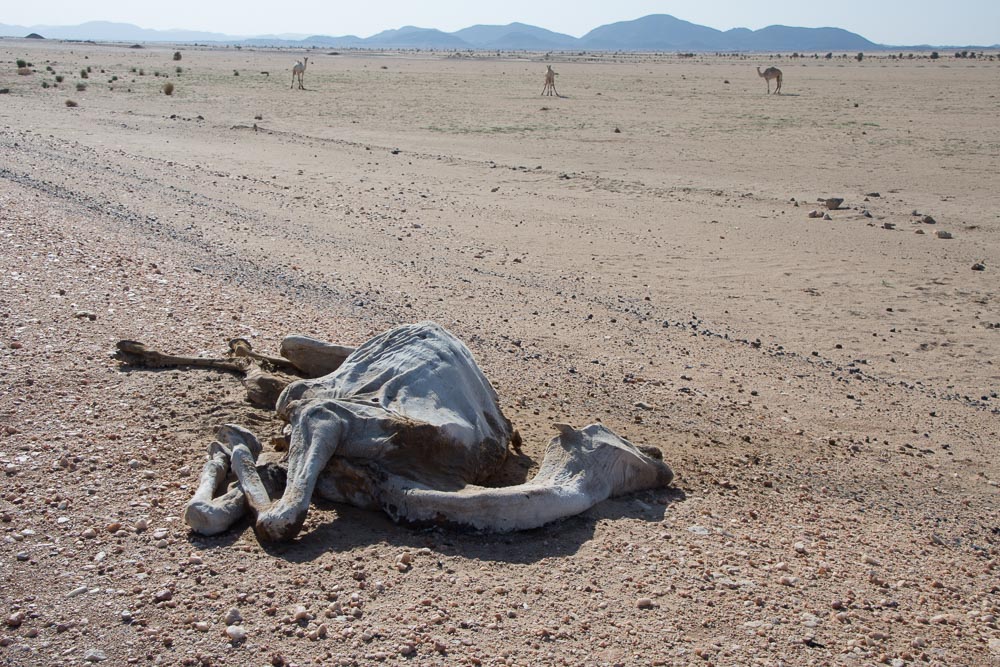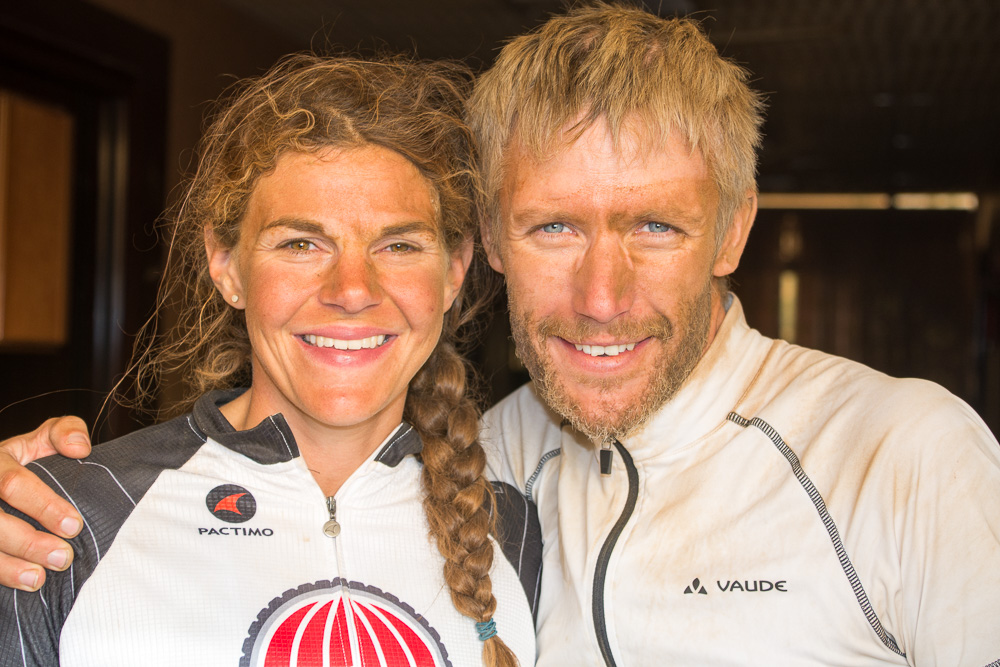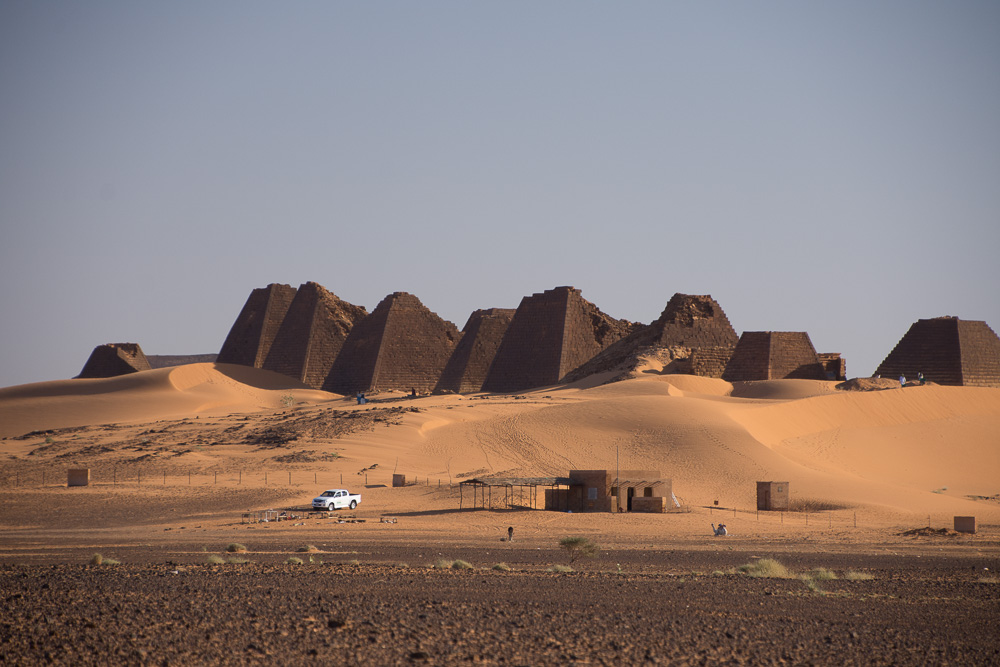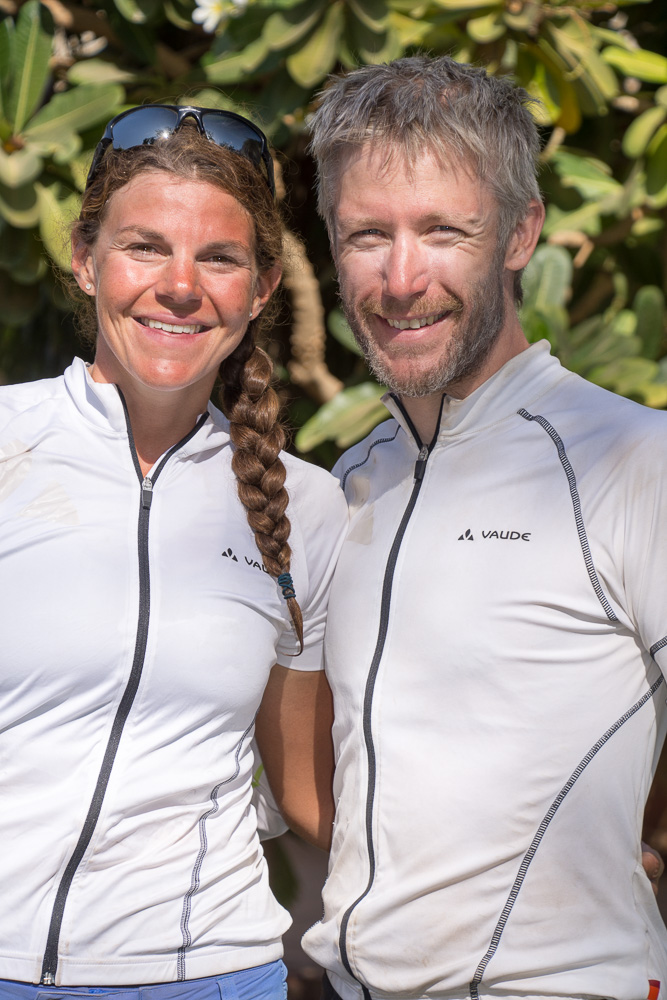Crossing the desert from Aswan to Khartoum
There are two ways to travel independently from Egypt to Sudan. The first is to take a ferry from Aswan to Wadi Halfa and the second is to cross the recently re-opened land border. Neither of which you can cycle (unless, of course, you are Mark Beaumont setting World Records with a full police escort, a lightweight bike and the ability to cycle 300km in one day!). The bus company was not keen to take us with our bikes so we opted for the well-travelled route by ferry.
Our extensive research told us that we needed to be prepared for this trip – we had read a number of blogs where travellers had been refused ticket sales and bumped off boats due to overcrowding even though they had a ticket, so we were keen to ensure that this was not to happen to us. Once we had our precious Sudanese visas we headed to the ticket office tucked away on an Aswan back street and asked for two 3rd class tickets. “Sorry, no 3rd class tickets available”. First class gives you a tiny cabin, second class entitles you to a chair and third class is deck space only. Since we were happy to sleep in our own space on deck on our sleeping mats third class was more than good enough. But not for foreigners it seems. Eager not to cause any fuss, we bought two second-class tickets for the weekly ferry on Sunday.
We got ourselves packed up and ready to go, bought enough food and water for a couple of days and alarms were set for 4am ready to cycle to the port. You see, we’d been warned that we’d need to arrive really early to get to the front of the queue to ensure we got on the boat (one blog we had read mentioned a queue of over 100 people by 6am). So, after practically no sleep we made the one-hour ride through Aswan’s dusty back streets in the dark and made it to the port by 6am. We arrived to find a ghost town. Were we in the right place? Turns out we were so we set up camp by the gate in time for it to open at 9am, bought some tea and did what us Brits do well, formed an orderly queue all by ourselves. It felt a bit like we’d arrived to start queuing at Wimbledon a week early by mistake.
Before long, fellow travellers did start to arrive, with lorries laden with fridges, furniture, fruit & veg and many more household possessions. Still, not nearly as much as we were expecting. Finally the gates opened and the fun started. No less than 10 stages of bureaucracy and border control later, taking at least a couple of hours, we were at last free to get onto the boat. We whizzed onto the boat keen to get a good spot on deck only to find that we were the only people on the boat! Where was everyone? Still feeling a little like we had perhaps got onto the wrong ferry, we set up camp under the life rafts (the only place to guarantee shade all day) and went to sleep for a couple of hours. Around 6pm, once the boat had been fully loaded, we set sail for Sudan, although the deck was still pretty much empty.
After a very cold and windy night, the boat docked at Wadi Halfa around 10am the next morning and before we knew it, we were cycling in Sudan!
Exhausted from two nights without sleep we decided to spend the night in Halfa. We checked into a lokanda, the local name for a budget guest house (at $3 a person, it was a revolting as you might imagine and I wasn’t too sure they were that keen on having me there either). We needed to register with the police on arrival in Sudan, pay our entry fees as well as register for permits to travel outside Khartoum which took some time but was all done at the police station. Next stop was to get our photography permit which turned into a two hour wild goose chase as we were sent from one end of town to another a few times. Finally we found the right place but the man in charge was not there so he told us over the phone not to worry about the permit…we have not had any issues to date in Sudan without this permit and have subsequently picked one up in Khartoum.
From Wadi Halfa we took the road to Dongola, which tracks the Nile most of the way. The wind was behind us and we managed our longest day yet (170km) before wild camping amongst piles of bat poo in a disused building behind a water stop.
In Sudan, you can find water pots alongside the road relatively frequently to allow people to fill up with water – which is vital in the extreme summer heat when temperatures hit around 55 Celsius most days. We’d timed our entire trip to ensure we did not endure these sorts of temperatures and although we did have one day when the Garmin told us it was 50 degrees, it has mainly been between 32-40.
The road to Dongola was very much the same for the next couple of days, although the wind was not quite so favourable. Along the road were small Nubian villages and mining towns where people were so incredibly kind and welcoming. We had heard how friendly Sudan is and it has been amazing meeting so many lovely people. If you stop by the side of the road and someone sees you, they will immediately come and shake your hand and say you are welcome before leaving you to your own business.
We stopped over in Dongola in a small guesthouse and stocked up on supplies before our first desert crossing to Karima, which would take two days. We had plenty of food and enough water with us however, we were now heading southeast and the wind had picked up again blowing into our sides, slowing us down considerably. We’d had our first stomach upset and when, by4pm, we’d still not passed any water stations, tensions were rising somewhat at the prospect of having to ration our water until the end of the next day. We had just about enough with us, but it was going to be tight. Around 5pm we saw what we thought was a building in the distance…praying that it was not a mirage we steamed on ahead to check it out and, to our huge relief, we discovered there was a well and a couple of men living in a big concrete house. We were duly given as much water as we could drink, some dates and offered a bed inside for the night which we accepted without hesitation!
The next day was 120km to Karima, a town famous for its pyramids and home to Jebel Barkal, the southern most point of the Egyptian empire. Along the way, we met our first overlanders! Libby and Paddy and their two young girls were taking a year to drive from Cornwall to Cape Town – it was so lovely to see such friendly English people (the first English people we had seen since Cyprus!) and hear about their adventure.
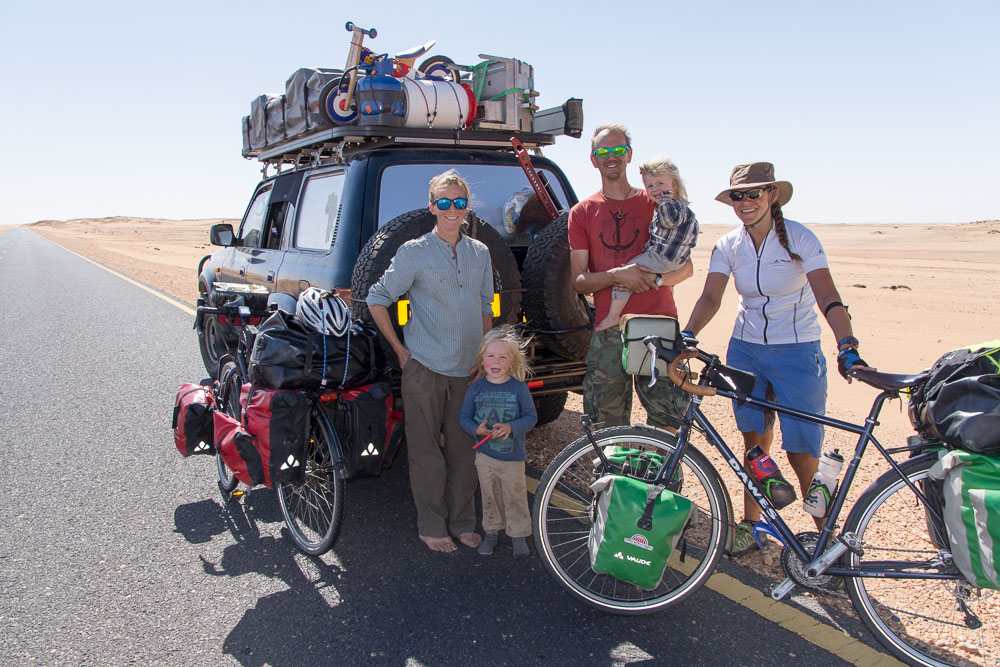
It was great to meet Libby, Paddy and their lovely daughters driving all the way from Cornwall to Cape Town
We mentioned that we were going to wild camp at the Nurri pyramids so we tentatively agreed to meet them later on. The day got the better of us both – the solitude of the desert and driving cross winds were exhausting and we rolled into Karima around 4pm and found somewhere to buy a coke and recharge. We had another 20km to our camp spot and just enough daylight to get there so we set off, excited at the prospect of camping at the pyramids and chatting some more with our new English friends. Unfortunately this was not to happen. Our route took us on a short cut through the town that ended up on a track with deep sand that made pushing our bikes painfully slow and exhausting so after 30 minutes we agreed we were just not going to make it and should fill up with water and find a camp spot. As if out of nowhere, we found a set of water taps and just beyond was a large shelter made from palm trees – a perfect place to camp out of the wind and out of sight! Just as we were setting up our tents two big 4x4s turned up and some extremely charming Sudanese men wanted to check that we were ok! They were on their way to prayers in town and after we assured them that we were fine and had an enclosed tent so no scorpions could get in they pressed on – but ensured that they checked in on us on their way back home! Such has been the welcome we have enjoyed almost everywhere in Sudan!
Once our tent was up and we’d washed, we sat in our chairs to relax for a bit before making some delicious rice and tinned beans. It was only then that we realised that we had accidentally camping right outside the tombs and pyramids of Jebel Barkal just in time for sunset! So, we may have missed the pyramids we were aiming for but we had a lovely surprise! We hope we might bump into Paddy and Libby again on the road as true to their word, they were waiting for us at Nurri Pyramids, just such a shame we never made it there.
From Karima it was time to do our second desert crossing to reach Atbara – this time the Bayuda desert – which would take us 3 days. Unsure what we could buy on the road, we stocked up with enough food for the duration and took as much water as we can carry (around 12 litres each).
It was an incredibly tough three days with a crosswind with us for almost the duration limiting our speed to 12-15kpm most of the way.
We were still having to pinch ourselves though to remember how much we had been dreaming about cycling across a desert and here we were – living our dream (it would be boring if it was easy right???!).
On the second night it was James’s turn to have a stomach upset which left him drained and exhausted for our final day on this stretch – but all was good, it was just 100km to Atbara we could get through it. Not so fast. Overnight a mild haboob had started brewing and, although it was not as bad as some of the storms we have heard about, cycling for an entire day with sand blowing into your face and frankly everywhere else made for a thoroughly miserable and incredibly exhausting day on the bikes. Of course in hindsight we can now look back on it with a smile and put it down as one of our more adventurous days!!
From Atbara we cycled a further three days to Khartoum along a much busier road carrying trucks to and from Khartoum and Port Sudan. Our first night was spent wild camping at some more pyramids – this time the Pyramids of Meroe – the ancient tombs of the ancient Nubian Kings and Queens of Meroe. Meroe was the capital of the Kingdom of Kush and it is thought that these pyramids are over 4,600 years old. Sadly an Italian explorer called Giusepe Ferlini destroyed many of them in a fruitless search for treasure and, although some are being reconstructed, we were shocked at how unsympathetic the reconstructions are. We’ve since learnt that hundreds more pyramids are being discovered every year here in Sudan and it is thought that there are more pyramids in one small section of the northern Sudanese desert than there are in the whole of Egypt! We felt hugely privileged to be able to enjoy these pyramids to ourselves and have the opportunity to camp just behind them and watch the sun go down. All that we were missing was a gin and tonic!
Finally, after 11 days on the go (our longest stint yet without a break) we arrived in Khartoum, somewhat worse for wear. We are extremely lucky be staying at KICS, the Khartoum International Community School and to be hosted by Nigel, Natasha and George (Nigel is the school Principal). I’m not too sure what Nigel thought when we arrived looking a little bit like shrivelled up desert prunes covered in sand dunes! After a shower and some food, we started to feel a little more like human beings and enjoyed our first night in a comfortable bed for some time!
We feel very lucky to be staying here at KICS – thank you so much to the incredibly lovely Winnard family for making us feel so at home (and Natasha we are so sad you could not be here too). This school is extraordinary. Both James and I have both decided we would like to go back to school here and start our education again. Nigel’s philosophy on education is inspiring and the children passing through his school are very lucky. We’ve enjoyed meeting and chatting to many of them during our stay.
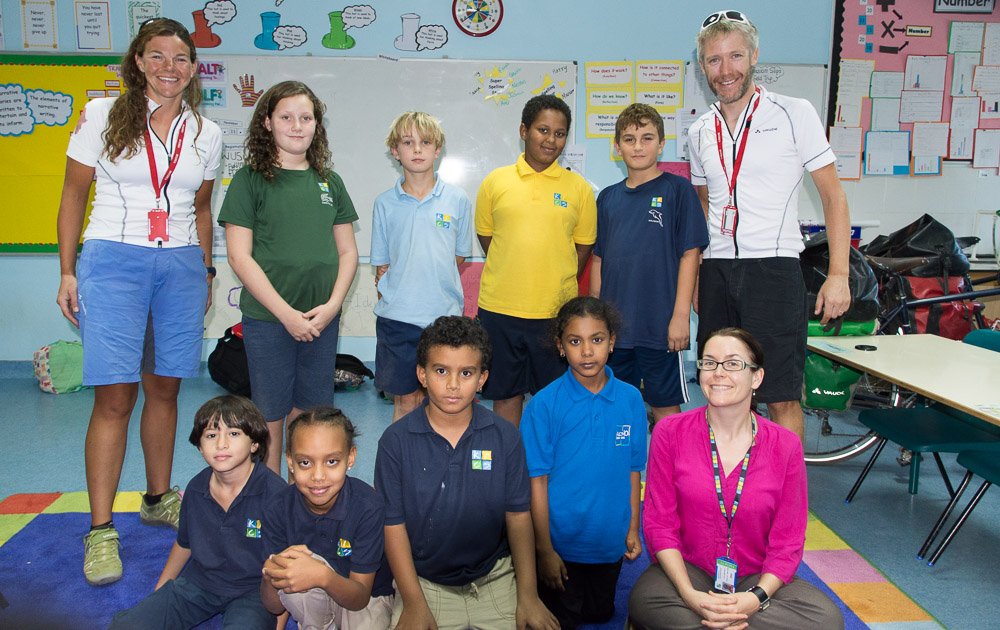
It was our pleasure to meet the Primary Student Council at Khartoum International Community School (KICS). They had some great questions and we were able to tell them about the @powerofbicycles
So, Ethiopian visas in hand, we are getting our kit together to hit the road once again with around one more week in Sudan, we should arrive in Ethiopia by the end of the month. Then life will change as we head into the mountains. Eek.
If you’ve enjoyed reading this blog post, please donate to World Bicycle Relief. Every penny goes to the great work the charity does in Africa – not to fund our expedition in any way.

